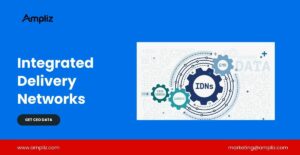Are you an oil and gas company that always wants to be in the top of the mind of its target audience? Do you want your prospects to think about you when they need any hydrocarbon product?
If your answer is yes then you must focus on building visibility, credibility, trust and interest from your target audience.
This happens when you put effort into the effective lead generation process. Through the lead generation process you will be able to expand your market, boost revenue, and be able to identify your potential customers.
If you want to achieve these benefits and are not sure where to start then this blog is for you.
Here we are going to discuss some proven lead generation strategies for oil and gas companies that help you to keep your lead pipeline full of high quality leads.
Best Lead generation Strategies For Oil and Gas Companies

1. Understand Your Target Audience
Effective lead generation begins with a deep understanding of your target audience. The oil and gas sector is vast, and your products or services may cater to diverse sub-niches. You can identify your target audience by using customer profiling and persona. Generally your target audience may range from national oil companies to environmentally conscious customers in urban area to individual buyers.
Therefore, it’s essential to create detailed buyer personas to identify the unique pain points, needs, and preferences of your potential clients.
Consider factors such as the size of the company, industry segment, location, and the specific challenges they face.
The more you know about your ideal customer, the better you can tailor your lead generation efforts to resonate with their interests.
2. Content Marketing
Content marketing is a powerful tool for lead generation in the oil and gas industry. This approach involves creating and sharing valuable, informative content to attract and engage potential clients. Here are some effective content marketing strategies:
a. Blogging:
Regularly publish high-quality blog posts that address industry trends, best practices, and solutions to common challenges. This not only establishes your company as an industry authority but also attracts organic traffic from search engines.
b. Case Studies:
Share success stories that demonstrate how your products or services have benefited clients in the industry. Real-world examples provide proof of your expertise and build trust with potential customers.
c. Whitepapers and E-books:
You can offer in-depth guides and research reports on industry-related topics. These resources can be gated, requiring users to provide their contact information to access them, thereby generating leads.
d. Webinars and Podcasts:
Hosting webinars or producing industry-specific podcasts to showcase your expertise is also one of the best ways of engaging with your target audience.
3. Search Engine Optimization (SEO)
In the digital age, a strong online presence is essential for lead generation. Implementing effective SEO strategies can help your oil and gas company rank higher on search engine results pages, increasing your visibility to potential clients.
a. Keyword Research:
Identify relevant keywords and phrases your target audience might use to search for your products or services. Optimize your website and content around these keywords to improve your search engine rankings.
b. On-Page SEO:
Ensure that your website is well-optimized with proper title tags, meta descriptions, and headers. Use high-quality images and optimize them for faster loading times.
c. Off-Page SEO:
Build high-quality backlinks from reputable websites to increase your domain authority and improve your search engine ranking.
4. Social Media Marketing
Utilizing social media platforms is an effective way to reach and engage with your target audience in the oil and gas industry. Here’s how to leverage social media for lead generation:
a. Choose the Right Platforms:
Identify which social media platforms are most relevant to your target audience. LinkedIn, Twitter, and Instagram are popular choices for B2B lead generation in the oil and gas sector.
b. Share Engaging Content:
Post industry news, updates, and valuable content to keep your audience informed and engaged.
c. Paid Advertising:
Consider running paid advertising campaigns on social media platforms to target specific demographics and increase your reach.
d. Direct Messaging:
Use direct messaging to initiate conversations with potential leads. Personalize your messages and offer value rather than pushing your products or services aggressively.
5. Email Marketing

Email marketing remains a potent tool for lead generation in the oil and gas industry. It allows you to nurture relationships with potential clients and provide them with valuable content and updates.
a. Segmentation:
Segment your email list based on factors such as industry segment, company size, and previous interactions. This allows you to send more personalized and relevant content to each group.
b. Drip Campaigns:
Set up automated drip campaigns that deliver a series of targeted emails to nurture leads over time. Provide valuable insights, product information, and success stories to gradually build trust.
c. A/B Testing:
Continuously test and optimize your email campaigns to improve open rates and click-through rates. Experiment with subject lines, content, and send times to discover what works best for your audience.
6. Networking and Industry Events
In the oil and gas industry, networking and attending industry events can be highly beneficial for lead generation. These events provide you an opportunity to connect with potential clients and partners in a more personal and engaging manner.
a. Trade Shows and Conferences:
Participate in industry-specific trade shows, conferences, and exhibitions. These events allow you to showcase your products and services, build brand awareness, and network with potential clients.
b. Webinars and Workshops:
You can conduct online webinars and workshops to share your expertise and engage with a broader audience. Encourage attendees to interact and ask questions, fostering relationships.
c. Online Forums and Communities:
You can also join industry-specific online forums and communities to engage in discussions, share knowledge, and establish your company as an industry thought leader.
7. Partnerships and Collaborations
Collaborating with other companies in the oil and gas sector can open up new lead generation opportunities. Consider forming strategic partnerships that allow you to cross-promote each other’s products or services.
a. Joint Webinars and Workshops:
Be a partner with complementary companies to co-host webinars and workshops. This not only expands your reach but also positions your company as a valuable resource.
b. Co-Branded Content:
Create co-branded content, such as e-books or reports, with partner companies. This can help you reach a wider audience and generate leads from their customer base.
8. Analytics and Measurement
To ensure the effectiveness of your lead generation strategies, it’s essential to measure and analyze your results. Track key performance indicators (KPIs) to understand what’s working and what needs improvement.
a. Conversion Rate:
Monitor the conversion rate of your landing pages and forms to assess how effectively you’re turning website visitors into leads.
b. Website Traffic:
Analyze your website traffic to identify which sources are driving the most visitors and leads.
c. Email Campaign Metrics:
Track email open rates, click-through rates, and conversion rates to gauge the success of your email marketing efforts.
d. Social Media Engagement:
Measure engagement metrics such as likes, comments, shares, and direct messages to evaluate your social media marketing performance.
e. Sales Pipeline Progress:
Keep track of how leads progress through your sales pipeline. Monitor the percentage of leads that convert to customers and the time it takes for this conversion.
You have to put your heart and soul into the lead generation process, and when done effectively it brings you immense benefits.
Let’s see which are the benefits.
Benefits of Lead generation for Oil and Gas Companies
Implementing effective lead generation strategies can provide numerous benefits to your oil and gas companies, helping you thrive in a highly competitive and rapidly evolving industry. Here are some of the key advantages:
Increased Sales and Revenue:
Lead generation strategies help you identify and nurture potential customers, increasing the likelihood of converting leads into paying clients. This, in turn, boosts sales and revenue.
Cost-Effective Marketing:
Targeted lead generation approaches often prove more cost-effective than traditional marketing methods, as they focus resources on reaching potential clients most likely to be interested in your products or services.
Improved ROI:
By investing in lead generation strategies that produce high-quality leads, you can experience a significant improvement in return on investment (ROI) as compared to generic marketing campaigns.
Enhanced Brand Awareness:
Effective lead generation efforts, especially through content marketing and thought leadership, can raise the company’s profile in the industry. This increased visibility and brand recognition can lead to more business opportunities.
Competitive Advantage:
Companies that implement robust lead generation strategies are better equipped to stand out from their competitors. By providing valuable information and solutions to potential clients, they build trust and credibility in the industry.
More Targeted Marketing:
Lead generation strategies allow you for precise targeting of potential clients based on factors like industry segment, location, and specific needs. This targeted approach ensures that marketing resources are utilized efficiently.
Diversification of Lead Sources:
A well-rounded lead generation strategy incorporates various channels, such as SEO, social media, email marketing, and networking. This diversity reduces the company’s reliance on a single source of leads, making it more resilient to market fluctuations.
Long-Term Relationship Building:
Effective lead generation is not just about acquiring new clients; it’s also about building lasting relationships. By providing value through content and personalized interactions, you can foster trust and loyalty with your clients.
Data-Driven Decision Making:
Lead generation strategies often involve data collection and analysis, providing valuable insights into customer behavior and preferences. This data can inform future business decisions and product development.
Adapting to Market Changes:
In the oil and gas industry, market conditions can change rapidly. Implementing lead generation strategies allows you to be more agile and responsive to market fluctuations and emerging opportunities.
Scalability:
As a company’s lead generation efforts become more successful, they can be scaled up to accommodate growing demand. This scalability can be particularly advantageous for companies looking to expand their operations.
Better Customer Understanding:
Lead generation strategies require a deep understanding of the target audience. This knowledge not only helps you in acquiring new leads but also in tailoring products, services, and messaging to better meet customer needs.
Consistent Growth:
A consistent flow of leads can contribute to steady business growth, ensuring that the company remains resilient and capable of weathering economic challenges.
Trust and Credibility:
By providing valuable content, expertise, and solutions to potential clients, you can establish themselves as trusted authorities in the industry, which can lead to increased trust and credibility.
Conclusion
In the dynamic and competitive landscape of the oil and gas industry, lead generation is a continuous and evolving process. Effective lead generation strategies require a deep understanding of your target audience, a commitment to producing valuable content, and a willingness to adapt to changing market conditions. By implementing the strategies outlined in this blog post, oil and gas companies can position themselves for growth and success in an ever-changing industry.




